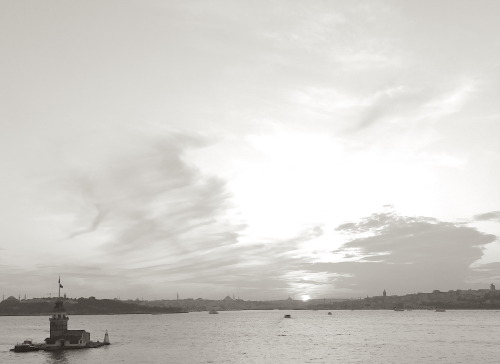
First and foremost, given the circumstances, I hope this post finds everyone and their loved ones healthy and safe—whoever reads this, and wherever you are. I also wish to give my sincere condolences to anyone who has lost friends, family members, or neighbors in the current COVID-19 pandemic crisis—beginning with the people of China, South Korea, Japan, Iran, and Italy, who were the first to confront the pandemic and the first to lose loved ones on a mass scale in this scourge. By now, however, my condolences can embrace the entire world.
Second, it goes without saying that I hope everyone is taking the crisis seriously, including observing all precautionary measures and quarantines urged by international public health experts and now decreed by most national and local governments around the world. Call it what we will in our respective languages, and I’ve learned a lot of new terms in recent weeks—karantina, aislamiento,l’éloignement social, social distancing, shelter-at-home, flattening the curve—I’ve come to learn how these are not just empty words or rules, but meaningful processes demonstrating how our actions—including the thoughtless ones—can dramatically impact others. Perhaps that was a lesson waiting for us even without COVID-19. But focusing on our present condition: if we are healthy and safe, this is not the time to think of ourselves, but to think about the millions of health workers at the front line of this virus who are struggling to stem the tide of illness and save lives in overcrowded hospitals and clinics around the globe. If we are healthy and safe, this is not the time to dwell on what we’re losing in terms of leisure, surplus income, and consumerism, but to think of what is really gained by flattening that curve—not just so we can return to the movies, sporting events, our favorite restaurants and shopping malls, etc., but so that those who have lost their jobs and vital income can go back to work. If we are healthy and safe, perhaps this is not the time to complain of being stuck at home, but to be grateful for being safe at home—to say nothing of those without homes, food, or running water in the current crisis.
Finally, my apologies in advance for the anticlimactic quality of this blog entry. I wish I could share a profoundly inspiring and uplifting essay, or other deeply reflective and original piece, to ease our anxieties and buoy our spirits in the middle of the current pandemic and global public health crisis. Perhaps, however, there is some value to restoring a sense of normalcy and even appreciation of the mundane in our daily routines and professions during these extraordinary and unsettling times. Something also tells me that, while it is important to stay informed and keep abreast with the latest recommendations of public health experts and our local authorities, there is such a thing as news and information overload, which can also be deleterious to our health. Especially when it’s of the anxiety-stoking variety. I am not in the business of telling others what to do—with the occasional exception on course syllabi and exams for my students, to be fair—but were I to advise myself on health and happiness in these strange times, it would probably sound like this: rather than being glued to the television or passively receiving the latest from our favorite news sites, perhaps the best thing we can do right now is spend quality (i.e. screen-less) time with our loved ones at home or in quarantine-approved fresh air spaces, if we are so fortunate, while rationing out screen time for our ongoing professional or educational responsibilities, and for nourishing self-care, including connecting with family, friends, and colleagues not in our physical presence.
On that note, and müsaadenizle (with your indulgence for this crass transition), I’m sharing a link below to an article I recently published in the International History Review. It grows out of my work at the Presidency’s Ottoman Archives in Istanbul, formerly known as the Prime Ministry Ottoman Archives (Başbakanlık Osmanlı Arşivi), as well as the Archives of the Turkish Red Crescent Society, among other collections in Turkey, North America, and the UK. As my fellow ANAMED colleagues will recall from presentations earlier this year, it is part of my broader project to write a social and cultural history of exchanges and ties between the late Ottoman Empire and North America, especially the United States (though this particular piece focuses more on Canada). Tentatively titled Ottoman Americana, this book project has been at the heart of my work at ANAMED this year.
Before sharing the article, however, I will share one last remark on the current crisis: they are not my own words, but something I heard from a thoughtful relative recently, who probably heard it widely circulated somewhere on social media. For many of you this is a truism, but for me it’s still not a bit cliché because it rings so true every one of these days and nights as we watch our cities and countries lock down in almost universal quarantine. And it goes something like this: “So much of this pandemic feels like Mother Earth sending us all to our rooms to contemplate the greed and destruction we have sown in her lands, seas, and skies as a human species, especially in modern times.” In other words, the *Anthropocene. For the sake of future generations, may we all heed the lesson.
*Props and thanks to all my fellow ANAMED colleagues, especially Ömür Harmanşah, Güldem Büyüksaraç, Tevfik Emre Şerifoğlu, Catherine Steidl, Semih Çelik, Duygu Tarkan,Nergis Günsenin, and Athena Trakadas for teaching me so much about this theme through their work (and examples) this year.
Article link:
Faiz Ahmed, “Meddling with Medals, Defending the Dead: Late Ottoman Soft Power from South Asia to North America.” The International History Review (Feb. 2020).

